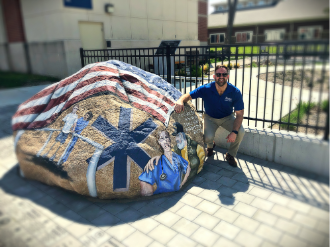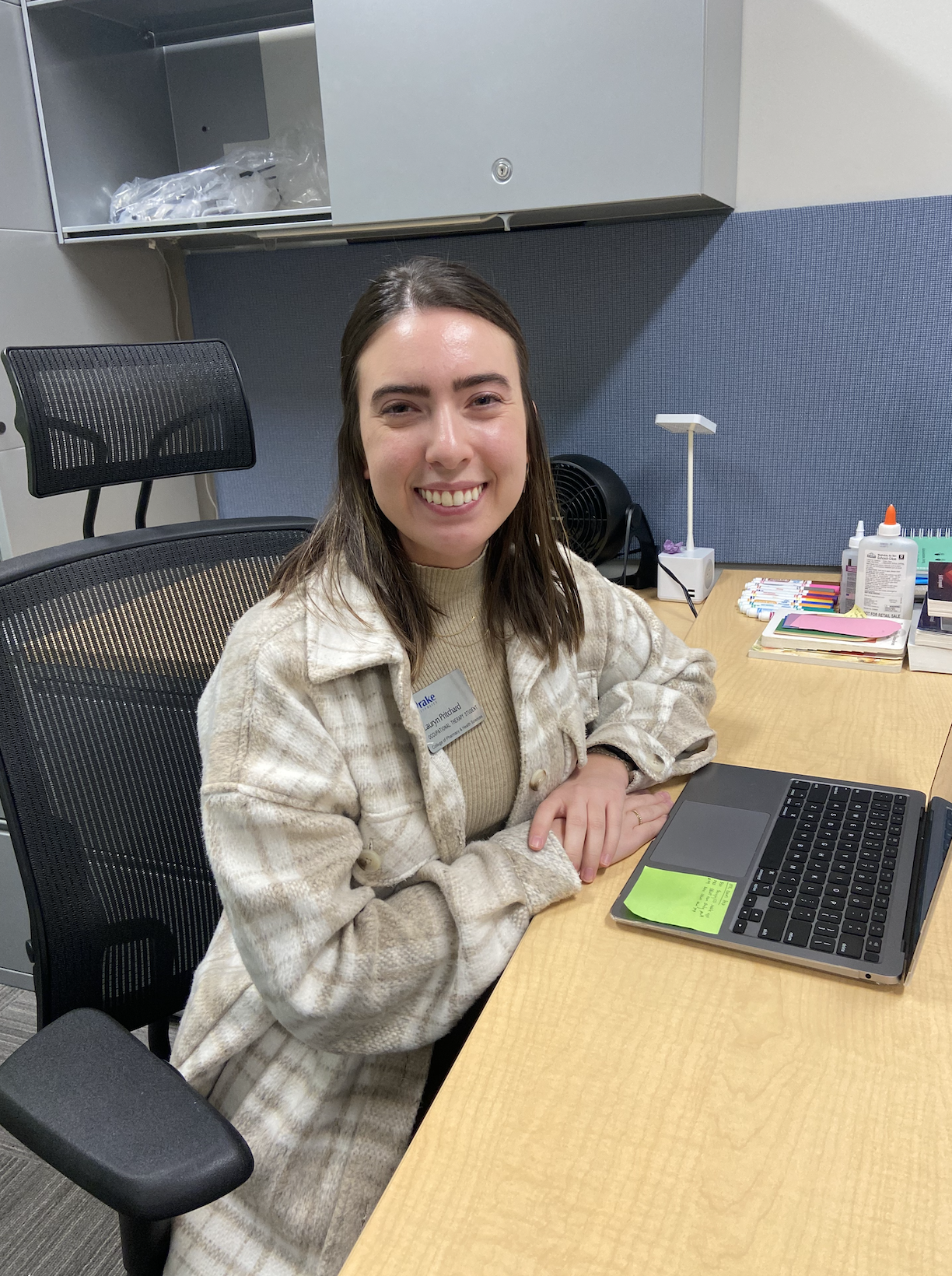Occupational Therapy Spotlight
Meet Robert Boarman. Robert is a 2022 graduate of Drake's Occupational Therpay Doctorate (OTD) program! In his last year of the OTD program, Robert had the opportunity to complete a doctoral capstone experience in the Caregiver Support Program at the VA Central Iowa Health Care System in Des Moines, Iowa.

Tell us about your capstone experience in the Caregiver Support Program of the VA Central Iowa Health Care System. What were your responsibilities and what did a typical day/week look like?
My primary responsibility consisted of conducting the Veteran Functional Assessment as a part of the eligibility review process for enrollment into the VA’s Program of Comprehensive Assistance for Family Caregivers (PCAFC). The PCAFC is the clinical program of the Caregiver Support Program (CSP) that provides services and benefits ( e.g., a monthly stipend, mental health services, assistance with travel, etc.) to approved and designated family caregivers of eligible Veterans or service members who are in need of personal care services for a minimum of six continuous months based on any one of the following: an inability to perform an activity of daily living; or a need for supervision, protection, or instruction. The Veteran Functional Assessment involves the administration of a unique, VA-exclusive assessment instrument designed to capture the Veteran or service member’s functional needs, as it relates to the requirements for the PCAFC. Complete delivery of the assessment can take upwards of 4 hours for each applicant, as it involves a thorough chart review, direct interview with the Veteran and caregiver (in-person or video conference), and extensive documentation.
Additionally, I dedicated time and effort to conduct advocacy and program-development related research and education for the CSP through promotion of inclusive care, a national initiative to empower healthcare providers and professionals to engage Veteran caregivers as a part of the Veteran care team through policy, practice, and culture change. I supported this initiative by co-conducting trainings on inclusive care principles and practices to VA staff, and developing and disseminating a mixed-methods survey to VA therapy staff on caregiver interactions.
Lastly, I dedicated at least one day per week to collaborating with a mental health OT to provide services to Veterans struggling with homelessness and independent living. In this role, I was able to conduct functional cognitive screening and ongoing psychosocial support in an effort to promote housing access and prevent housing disruption or loss. On occasion, I supported OT staff covering scheduled evaluations and treatments within the Community Living Center, a skilled nursing service unit.
What is your favorite thing about this Doctoral Capstone?
The relationships I formed with my mentors and colleagues across the VA service units. I felt supported and encouraged through my interactions and collaboration. Moreover, I enjoyed learning and providing Veteran-centric care, and participating in the innovative work being done to address the needs of our Nation’s Veterans and families.
What attracted you to Drake's OTD program?
The opportunity to complete a doctorate and receive a Drake education. I am a non-traditional student with ties to the community and the University. I hold the Drake experience and faculty in high regard, so pursuing my formal OT education and preparation through Drake was my number one focus.
Have your career goals changed at all since starting Drake's OTD program? How so?
To an extent, yes; however, I went into the program with a flexible and persuadable mindset, and that has remained unchanged. I would say my interests since beginning the program have become more mature and refined but no less broad. For me, this is the paradox of choice in OT (tongue-in-cheek), rather than making newly-minted OTs happy with having many options for practice, they frustrate decision-making and cause stress!
How has Drake prepared you for your future career as an occupational therapy professional?
Drake has prepared me by asking bold questions of the profession and looking for innovation in OT. The faculty work hard to inculcate a broad perspective and open mindset for practice, challenging norms but reinforcing core principles and hallmarks of the profession. I believe I am more prepared to demonstrate skill as an evidenced-based practitioner poised for growth as a leader in whatever practice area I find myself.
What is one piece of advice you'd give to future occupational therapy students?
Work to further your research exposure and scholarly skills. Leverage this in your fieldwork and future career opportunities. This will distinguish you as an OTD graduate. Always seek to strengthen your communication abilities and professional character. This will distinguish you as an Drake OTD. Don’t be afraid or disappointed in your fieldwork placement. Embrace the challenge and find a way to foster OT relevancy. This will make you a more attractive and capable professional in whatever area you pursue.


